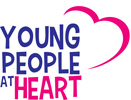This feel-good Friday we are celebrating National Care leavers Week. An 18th Birthday is a celebration for most teenagers, but it can be a worrying time for the 10,000 young people in the UK leaving care who suddenly become independent.
Before they can be independent, we need to give children in care opportunities to be interdependent. At some point, usually during their teenage years, children in care will hear discussions of what happens after care. Initially, it may be when another young person they know or an older child, has moved to independence or talked about by their social workers.
Then, when they are around 15 years old, they are told they must start preparing for independence. They must learn ‘life skills’ because ‘there won’t be anyone there to do it for you when you move to independence’. But doing that is sending out a message ‘You are on your own.’
Therefore, many young people seem to reject much of the care offered to them, never fully trusting it, preferring instead to trust the relationships and associates we often consider unhealthy or harmful. They rush towards being independent too, insisting they are ready, saying they should be allowed to go now.
We need to change our entire thinking about how young people in care move into adulthood and the messages we are giving them from an early age. They need to have a sense that some key relationships are for keeps.
We need to let them know that, no, they will not be on their own and , they do not have to be independent. Instead, they can be interdependent.
We start this work a lot earlier with our young people and foster carers and allow our children to seek support from their carers and support workers to ensure they know they are not alone and will continue to be supported into their life journey. So they have a sense of belonging and understanding that they can ask for help and be supported as they leave care and beyond.
We do this through developing an independence plan with the young person and working through key ‘life skills’ such as:
- Budgeting, managing money and savings
- What food to buy, how to cook it and store it
- How to use a washing machine and ironing
- Housework and cleaning
- DIY such as putting wardrobes up, putting plugs on and decorating
- Thinking about the future, what they want to do for employment, further training, and how this can be achieved.
- Accessing advice and support from others
- Leisure activities and other interests.
- Getting to and from places
- Keeping safe
- Online safety
- Relationships
It is key to be supported with these skills to develop self-esteem and resilience to manage living independently in the future. Here at Young People at Heart we are implementing a pre-teen drop in next year, talking about independence to our carers and children to change their thinking at a much earlier stage.
